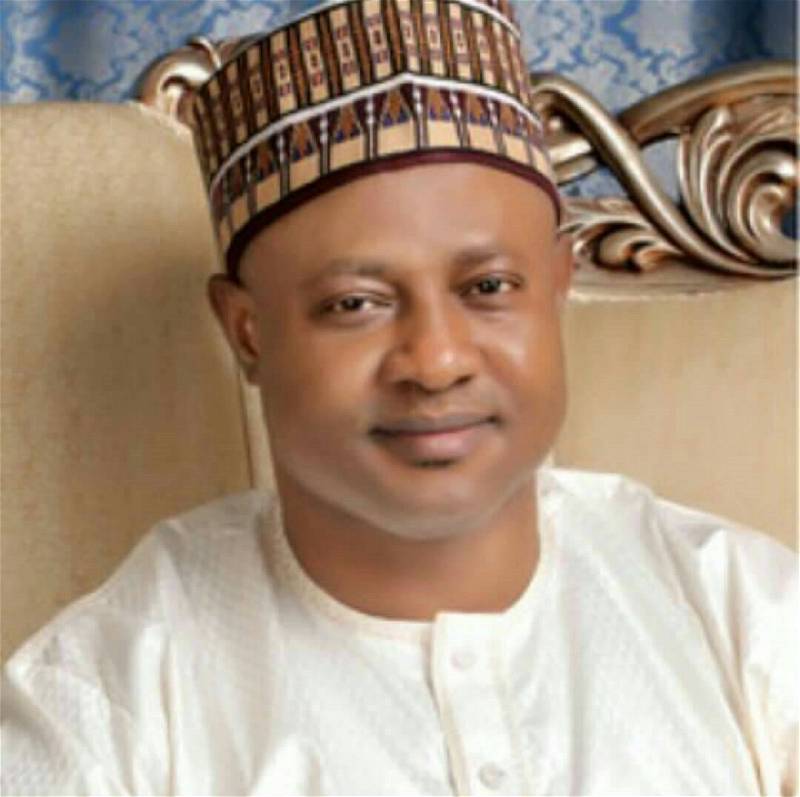The Federal Government on Thursday stressed the need for cooperation among security agencies to address prevailing security challenges in the country.
The Minister of Defence, retired Maj.-Gen. Bashir Magashi, stated this at a two-day workshop on “Inter-Agency synergy” in Abuja.
The workshop, which theme was “Inter Agency Synergy: An Imperative for Defence and Security Management,” was organised by the Ministry of Defence.
Magashi said it was organised to evolve ways for enhancing collaboration and cooperation amongst security agencies.
He said that effective security and result-oriented management architecture of any nation could never be achieved without a well-knitted operational and intelligence interchanges between and amongst its security agencies.
According to him, over the years, many great nations have suffered very serious national security setbacks for the singular reason of the lack of synergy amongst its security agencies.
“This is even more so when very crucial intelligence at the disposal of a security agency, which should be immediately transmitted for the use of a relevant security agency, is left unattended to.
“Such negligence and lack of patriotism, in my opinion, which I believe is the position of the generality of the audience here today, can be very costly and must not be tolerated within the national security network.
“It is, therefore, with this understanding that the Ministry of Defence and the Armed Forces of Nigeria has continued to explore ways of strengthening inter-agency synergy in the country,“ he said.
The minister said that the efforts of the armed forces to enhance inter-agency cooperation with other security agencies had yielded positive results in recent time.
He added that the distrust in the relationship between the military other security agencies, particularly the Nigeria Police Force, had been virtually eliminated.
“The bond of understanding and friendship between the AFN and other security agencies has been further enhanced with the incorporation of other security services, particularly the police in most of its recent operations across the country.
“While this is a positive step, we will continue to explore avenues that would provide us with the opportunity to work with the other security agencies to build trust and understanding.
“It is to also eliminate the unhealthy rivalry that has in the past hindered our efforts to work together, win together and safeguard the security of our nation for progress and national development,’’ he added.
On his part, the Minister of Interior, Alhaji Rauf Aregbesola, said that effective management and maintenance of peace and security could only be achieved through collaboration among security agencies.
Aregbesola said that the lack of respect for each other, lack of coordination and collaboration between and amongst them had been at the root of the nation’s history.
He added that there must be mutual respect among the agencies as well as proper coordination in all internal security operations in order to achieve the desired result.
“We cannot but work together to achieve the desired objective of acquisition of peace. You must acquire peace before you can maintain peace.
“We are in a special period as a nation considering the spate of economic and consequential security challenges that we are grappling with.
“For effective containment of the security challenges, we cannot overlook the need for leadership and synergy in the administration and management of the resources which are institutional, material and human that we deployed to neutralise the threat and their promoters.
“There cannot be any other way, we must respect one another, we must seek to coordinate our activities, we must collaborate and cooperate,’’ he said.
Also, the Minister of the Federal Capital Territory, Malam Muhammad Bello, represented by the Permanent Secretary, Mr Chinyeaka Ohaa, commended the ministry of defence for convening the workshop.
Bello said that the workshop was apt in view of the plethora of security challenges plaguing the country, such as insurgency, terrorism, banditry, kidnapping, cattle rustling and farmers-herders clashes.
He said that the situation called for critical assessment of the nation’s defence and security architecture with a view to identifying and remedying all factors that could undermine operational efficiency and national security.
“The workshop certainly fits into the broader agenda of the government toward repositioning and strengthening the nation’s entire defence and security architecture towards enabling the country to adequately cope with all prevailing and emergent security challenges.
“Let me, therefore, acknowledge the Ministry of Defence for spearheading this great initiative aimed at forging the desired harmony among the armed forces and other security agencies for enhanced efficiency in their operations,’’ he said.
The Chief of Defence Staff, Gen. Gabriel Olonisakin, said that inter-agency synergy had become the paradigm of defence and security in today’s world, especially developed countries.
Olonisakin said that such collaboration was the only way for conflict management and tackling current security challenges facing the country.
He added that there must be minimal rivalry and maximum cooperation among the organisations statutorily saddled with the responsibility of managing conflict and containing insecurity.
This, according to him, is because each of the security agencies has very unique capability and operational skills that can complement the other.
The workshop had in attendance all the Service Chiefs and heads of other security agencies in the country. (NAN)





